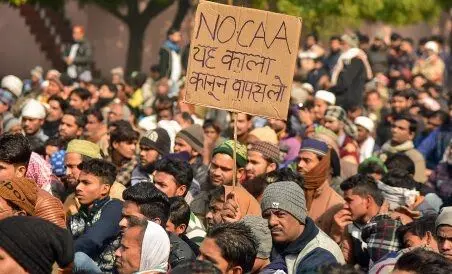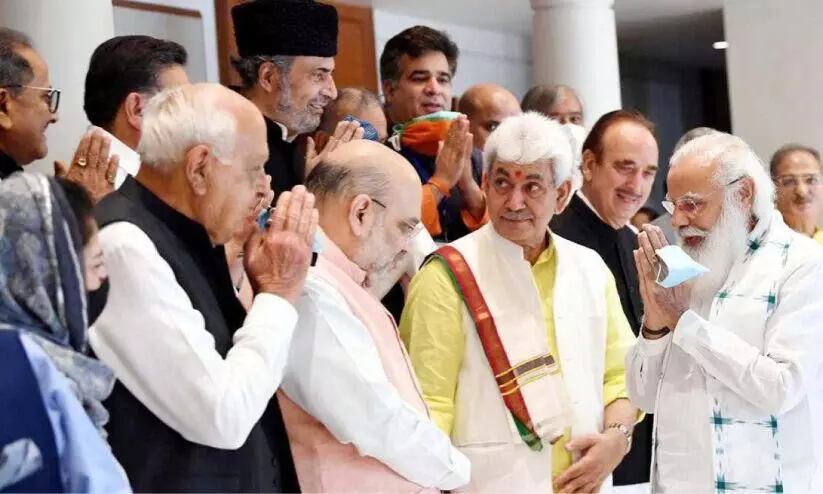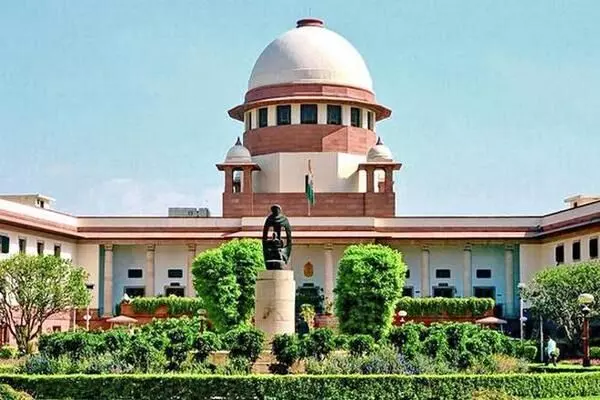
Urgent matters; inert justice
text_fieldsThe order of the Supreme Court to return the property illegally seized from civilian protestors is one that will elate all those who wish to see the rule of law prevail in the country. The court decreed that the property worth crores of rupees confiscated from the protesters in 2019 be restored to them. The Supreme Court directed the UP government to withdraw the confiscation notices after realizing that the government had violated the law. The court gives relief to supporters of democracy by upholding its role as a constitutional shield for citizens against the atrocities of the state. Such judicial interventions give hope when the constitutional system and provisions of the country are constantly subject to encroachment by governments. At the same time, it should be pointed out that court interventions are rare and take long which needs to be rectified by the judiciary itself. While the attitude of some judges to give upper hand to the executive and even excessive public praise for ministers still exist, it dents the hope and expectation stated above. What makes the judiciary relevant is the freedom and power to weigh the policies and actions of the state on the scales of the constitution, without any extraneous consideration other than sense of justice. The judges themselves have repeatedly underlined that the judiciary is irrelevant if it is not independent.
A number of cases of urgent importance directly related to the fundamental rights of citizens and the rule of law in the country are pending in the upper Courts. Despite the shortage of judges and the limitations created by the Covid-19 epidemic, the principle that the rule of law cannot be allowed to rest is not insignificant. The petitions of about 200 plaintiffs questioning the Citizenship Amendment Act are older than the complaints regarding the seizure of property by civil rights activists. They even contain the cardinal issue that the concept of granting citizenship on the basis of religion is unconstitutional. Although the Supreme Court issued a notice to the government while also rejecting the application to stay the law, the proceedings have been slow since then. Thus a law that undermines the core of the Constitution has been in force for more than two years without a court hearing. The move to repeal Article 370 of the Constitution, removing the status of the state of Jammu and Kashmir, quickly became law with the signature of the President.
Meanwhile, the petitions questioning it have been awaiting trial for two and a half years. It has been more than 15 months since a petition was filed seeking expeditious hearing. Apart from the government action being taken the year after the Supreme Court itself ruled that Article 370 was a constitutionally established law, it was not stayed either. While the government is moving ahead with all the follow-ups to that law, the case proceedings are moving very slowly. Another case of urgent importance is the case regarding electoral bonds. Another case that needs to be considered urgently is that of electoral bonds. That law which allowed a non-transparent system was passed by Parliament in 2017. Even its passage as a Finance Bill in the Rajya Sabha was a marked deviation of law. It has been years since many people have filed cases against it in the Supreme Court; but elections and secret funding of parties are going on unchecked. The court did not stay the law, nor has its been resolved after review.
These are not the only examples of justice delayed being justice denied; for more than three years the Supreme Court has been urging the central and state governments to enact special laws 'within four weeks' against lynchings. Governments did not move. In 2019, the court sent a notice to the Centre and the Governments in response to a public interest litigation. Yet nothing happened. It has also been years since the sedition law inherited from colonial period, certain provisions of UAPA and the Aadhaar Act were questioned. While the IT law was challenged in court, in the pendency of that case, the Centre has now changed the media accreditation rules and tightened its grip on the media. The Pegasus case, which is directly related to national security and the privacy of citizens, is under consideration but is moving slowly. The farm laws were questioned in court but were eventually withdrawn by the government itself. Letting cases and complaints that do not go with the interests of the government - even when it is for constitutional and fundamental rights - lie in cold storage, will result in the loss of the balance envisioned in the Constitution and in granting excessive power to the executive.



























